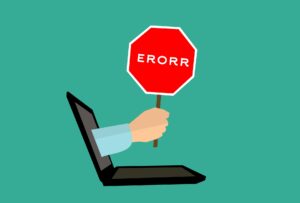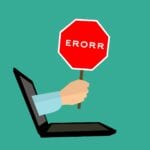Recently, I’ve had more than a few friends tell me they get nervous when sending me a text message.
Why would this be? I’m fairly direct, somewhat blunt and occasionally prickly—okay, I’m frequently prickly. But surely I’m not that bad? Am I?

After some not so subtle probing, it transpires they’re worried I’ll pick them up on spelling or grammar errors.
In their text messages.
Where auto-correct and predictive text are our (ungrammatical) rulers and typos are a dime a dozen.
I’d like to think they’re joking—I hope so—but their concern prompts me to ask this question:
When is it acceptable to have made errors in writing?
The pedant in me is screaming ‘NEVER’, but there are definitely times I have to tell that part of my personality to shush. There are times we can, and should, look past mistakes in writing.
- Text messages or quick emails or scribbled notes – when intended for your family, friends or colleagues – shouldn’t need to be perfect.
- First drafts (or, indeed, second or third drafts) of longer written pieces should focus more on nailing the content than on the secretarial aspects.
- Short posts or comments on social media can also get away with occasional spelling, punctuation or basic grammar errors. (I’m always wary, though, because social media appears to be a bit of a hunting ground for grammar-righteous people who have too much time on their hands.)
Your ‘care factor’ concerning the ‘correctness’ of your written communication should really be dependent on four things:
- your audience
- the platform
- the subject
- your intention.
As an editor and a writer, I believe these four areas make all the difference when it comes to the potential consequences of a few errors.
